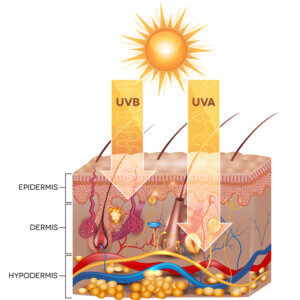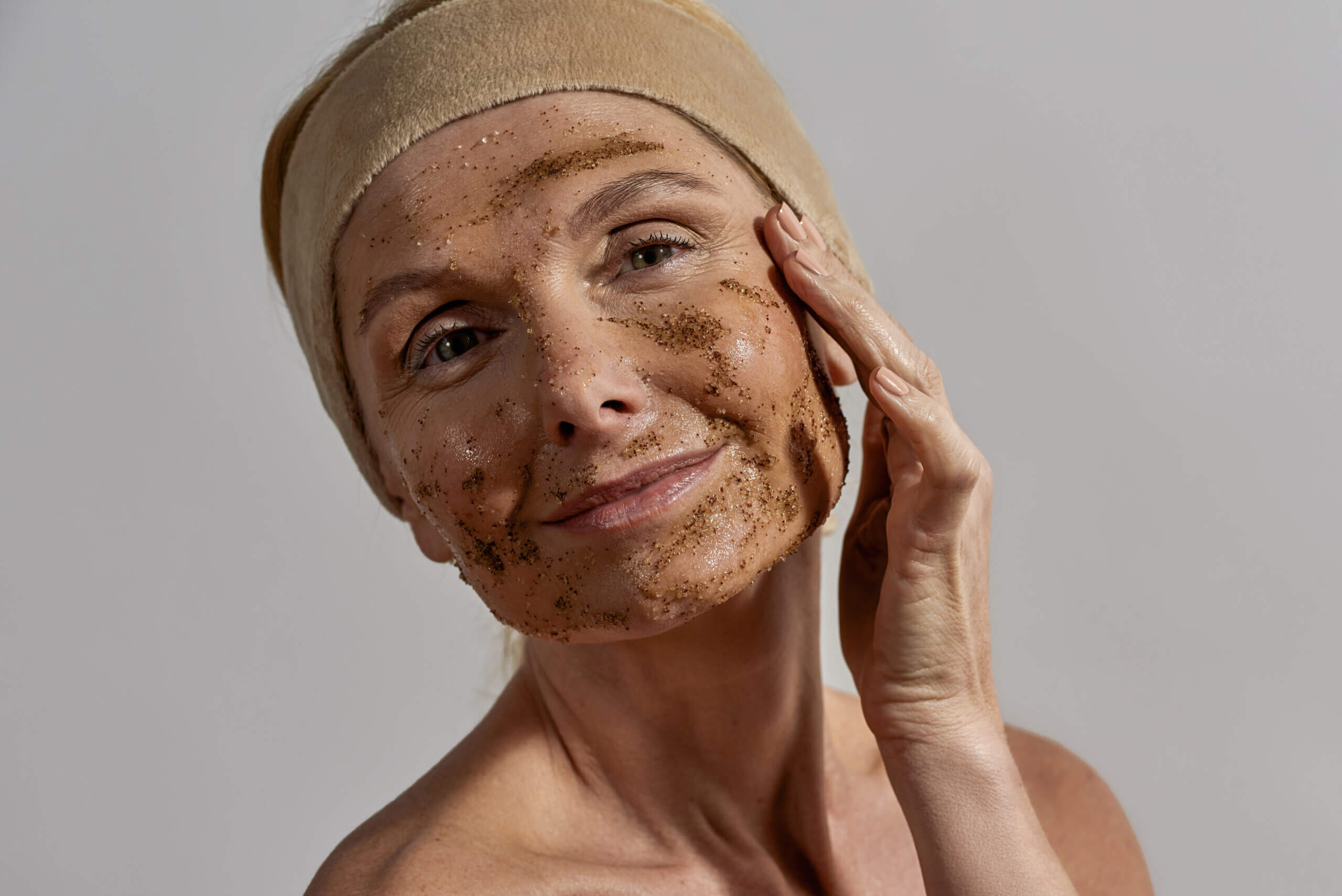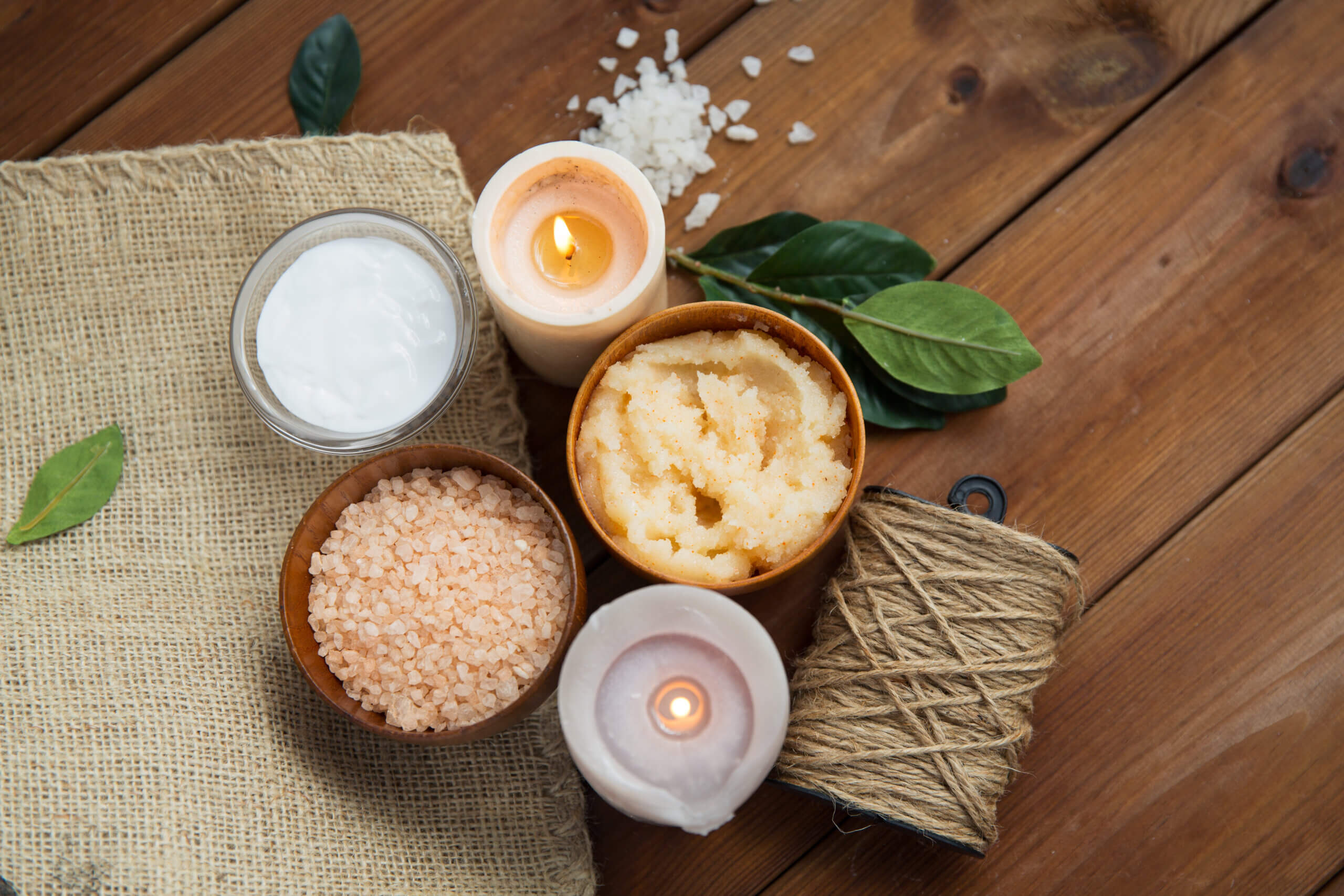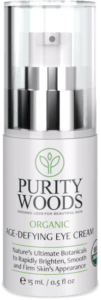Most of us take our skin for granted— at least until we get to the age when it starts looking older.
But the truth of the matter is your skin is always hard at work, doing much more than you realize. Without it, you wouldn’t be alive, and it acts as one of your main connections to the outside world.
So, in honor of this under-appreciated part of our bodies, here are some amazing skin care facts that will make you look at skin in a whole new light.
12 Fun Facts About Skin
#1 Skin is an Organ— And Larger than You Think
If asked to name major body organs, most people are likely to mention choices like the heart, brain, lungs, and liver first.
Skin is not so likely to be named, but in spite of the fact that it’s on the outside of your body, your skin is an organ. In fact, it’s equally as complex and important to your health as other organs like the heart or liver. It just happens to be a very unique organ with both an external and internal side.
Skin also has the distinction of being the largest body organ by weight.
Accounting for both the internal/external components of skin, it makes up about 16% of total body weight. Or if you only counted the external skin surface, it accounts for about 6% of total body weight. Either way, that’s well above runners up like the brain (2.4%), liver (2.4%), and lungs (1.8%).
And if you aren’t impressed with your skin yet, consider this: The average adult human has about 22 square feet of skin. That’s quite a lot!
#2 Skin Has Three Unique Layers

You might be aware that your skin has different layers, but did you know just how unique each one is?
It’s safe to say that each layer of skin has a vital role to play for health (and a youthful complexion), so here’s a quick rundown of what each one does:
- Epidermis— The outermost, visible layer of skin. Composed mostly of dead skin cells at the surface (held together by a lipid mixture) with new skin cells forming deeper in. Contains cells known as melanocytes that produce the pigment melanin, which gives your skin its color.
- Dermis— Middle layer of skin and the thickest. Home to nerves and blood vessels that allow you to sense pain, itchiness, touch, etc. and bring nutrients and oxygen to your skin. Also contains sweat glands, oil glands, and hair follicles.
- Hypodermis— Deepest layer of skin made up mostly of fatty tissue. Helps insulate your body from heat and cold and also contains some hair follicles, neurons, and blood vessels.
While these may just seem like interesting facts about skin, there’s one area where these layers have special significance: UV damage.
In short, UV damage from overexposure to sunlight is one of the biggest accelerators of skin aging. The wrinkles, dark spots, etc. that form from it can be very difficult to get rid of because the damage goes all the way to the dermis AND affects DNA.
#3 Your Skin Has Its Own Microbiome
The gut microbiome often gets most of the attention, but it isn’t the only microbiome in your body.
Skin has its own unique “community” of millions of microbes, including bacteria, viruses, fungi, and mites. The exact makeup of these microorganisms is different for every individual. However, all share the same characteristic of being able to adapt to the sparse nutrient availability and relatively dry surface of your skin.
Interestingly, research indicates that while the gut microbiome is thought to stabilize around age 3, the skin microbiome appears to keep slowly changing from infancy to older adulthood with a big shift during puberty.
Overall, though, researchers are just starting to explore skin microbes, their interactions, and their impact on skin health. It’s still largely uncharted territory!
#4 Skin is Your Barrier Against the World
It may sound dramatic, but skin is essentially your first line of defense against the outside world. It forms a physical barrier (via the epidermis) meant to keep toxins, irritants, and allergens out of your body.
This is why keeping your skin barrier healthy is critical for a clear, young-looking complexion as well as your overall health.
In addition to keeping “the bad stuff” out, skin also helps shield you from temperature extremes. It does this by sweating and/or dilating blood vessels to cool you down and by constricting blood vessels and/or tightening pores to retain heat.
(Speaking of fun facts about skin, goosebumps are thought to be involved in temperature control as well. They may help pores to close or trap air near the skin, but researchers aren’t positive about their function.)
#5 Skin Functions as an Immune Organ— And Organizes Itself Like an “Army”
Your skin is directly connected to immune function, which means the health of one directly impacts the other.
In fact, research has shown that skin acts almost like an “extra” immune system that functions as your first line of defense against pathogens. It contains “armies” of specialized immune cells (in the epidermis) that help your body resist infection.
Fascinatingly, researchers have also discovered that these skin immune cells really do organize themselves much like an army.
They are distributed across the skin in a distinct pattern with a minimum distance between each cell. However, they can reposition themselves to protect areas that may become more vulnerable to infection. As a whole, the cells avoid clustering together so they can “guard” your skin in the most effective way.
#6 Diet Can Change Skin Color— And Possibly Enhance Attractiveness

Most whole plant foods contain some type of pigments. These pigments, which often function as antioxidants as well, give them their color: red, orange, green, purple, etc.
In most cases, consuming plant pigments isn’t going to affect your skin much at all. (So, “eating the rainbow” won’t make you look like the rainbow.)
But there is one exception to this discovered by researchers and it involves a specific group of plant compounds known as carotenoids.
Carotenoids are pigments found abundantly in red, orange, and yellow fruits and vegetables. Consuming them regularly can give your skin an “attractive yellow-orange color.”
Before you get alarmed, this doesn’t mean your skin will actually look yellow or orange. It’s more of a subtle glow that most people associate with health. Perhaps because of this, studies have found that people who regularly consume carotenoids are often perceived as being more attractive.
Carrots, anyone?
#7 Your Skin “Eats” What You Put On It
Out of all the interesting facts about skin, this one may have the biggest connection to your everyday skincare routine.
To put it simply, your skin has two main ways of receiving nourishment: What you put in your body via food and what you apply directly to your skin.
Now, your skin, of course, doesn’t really “eat” what you put on it. But it does have the potential to absorb anything that is applied— sometimes shallowly, sometimes deeply.
There’s no way to say for sure how much of any given skincare product will be absorbed into your skin. Absorption depends on a lot of different factors like whether the substance is oily or watery, how concentrated it is, how large the molecules are, and so on.
But research has made it clear that certain molecules can penetrate through the epidermis to the vascular network in the dermis. This means it’s possible for something that is applied to your skin to reach your bloodstream and impact the rest of your body.
The bottom line: Choose what you put on your skin carefully. You don’t want toxins sneaking through your skin’s defenses.
#8 Your Skin “Sheds” and Renews Itself About Once a Month

If you’ve ever looked into creating a skincare regimen, you’ve probably heard of exfoliation.
Interestingly enough, your skin has its own exfoliation routine that it does all by itself. Approximately every 28 days, skin cells that were generated deep in the epidermis reach the surface and are sloughed off. This cycle of renewal keeps your skin looking bright and healthy.
Sometimes, though, dead skin cells build up and leave your skin looking dull. (Plus, skin cell renewal slows significantly as you age.)
In this case, you can help your skin along with a gentle physical exfoliator once or twice a week.
#9 Human Skin Doesn’t Seem to Like Outer Space
In case you were looking for some out-there facts about skin, here’s one: It doesn’t appreciate outer space.
Or to be more specific, the conditions aboard space vessels are rough on the complexion. Researchers have documented that astronauts commonly deal with skin issues like dermatitis, eczema, infections, and even “viral reactivations.”
Part of the reason for these frequent skin issues is the drier, somewhat harsh atmosphere of spacecrafts. However, researchers theorize that microgravity and cosmic radiation may also affect skin in ways yet undetermined. Plus, it appears as though the skin microbiome shifts while in space.
All that to say, astronauts with sensitive skin may want to prepare ahead of time.
#10 Your Skin Doesn’t Like Stress, Either

Most of us probably won’t be heading to outer space anytime soon, but nearly everyone deals with stress— which can take a big toll on your skin.
When you get stressed, your body releases cortisol (and other hormones). Over time, cortisol and other stress-related molecules have been shown to increase inflammation in the skin. This inflammation can directly contribute to issues like itchiness, dryness, and slow wound healing.
According to the American Academy of Dermatology, stress hormones also break down collagen and elastin. This is a huge problem because those are two of the most important skin proteins that keep your complexion looking firm and youthful.
On a more positive note, stress interventions like meditation have shown positive effects for a variety of skin problems.
#11 The Skin Around Your Eyes Needs Special Care
Have you ever wondered why signs of aging usually show up around your eyes first?
One key reason is that the skin surrounding your eyes is thinner than it is on the rest of your body. (And thinnest on your eyelids.) This makes it particularly delicate and sensitive and also means that it wrinkles easily.
In addition, because this area of skin is more delicate and sensitive, it’s prone to irritation and dryness. Dry skin doesn’t necessarily accelerate aging, but it does make any existing wrinkles, fine lines, etc. much more noticeable.
If you think about it, your eyes also go through a lot of “wear and tear” just through blinking and making facial expressions. It may not seem like much, but it has a big impact on this delicate area of skin and can make your face look prematurely old.
#12 Skincare is Ancient— And Used to Be Natural

This may not be one of the most surprising facts about skin, but we do tend to forget that skincare practices have been around for thousands of years.
As a prime example, the Bible mentions an elaborate skincare ritual in the book of Esther, which includes the application of myrrh oil (for 6 months!). Many famous women throughout history— most notably Cleopatra— are also said to have had secret beauty regimens.
Yet another example is the ancient Ayurvedic practice of Abhyanga or self-massage. It uses warm oil in a full-body massage that is believed to nourish the entire body as well as soften and smooth the skin.
Of course, all these ancient skincare routines used natural ingredients, mainly those found near at hand. It’s enough to make you wonder if synthetic chemicals are really needed for healthy, youthful-looking skin.
Younger-Looking Skin Around Your Eyes— Naturally
If you want a natural product that quickly fades the appearance of wrinkles, fine lines, bags, dark spots, etc., look into the Age-Defying Eye Cream from Purity Woods.
This cream is specifically formulated with nature’s most nourishing botanicals to deeply moisturize the delicate skin around your eyes (which is the thinnest, remember). It also contains powerful collagen- and elastin-boosting ingredients that effectively fight visible signs of aging.
The entire formula is USDA Certified Organic, meaning zero toxins or synthetic ingredients for your skin to “eat”.
Find out more about the Age-Defying Eye Cream here. And use your newfound knowledge to dazzle your friends/family with interesting facts about skin!


